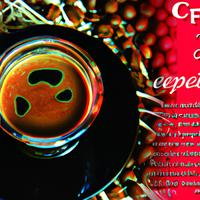
1 serving (30 grams) contains 3 calories, 0.2 grams of protein, 0.1 grams of fat, and 0.5 grams of carbohydrates.

Log this food in SnapCalorie

Nutrition Information
Calories |
23.6 | ||
|---|---|---|---|
% Daily Value* |
|||
| Total Fat | 0.8 g | 1% | |
| Saturated Fat | 0 g | 0% | |
| Polyunsaturated Fat | 0 g | ||
| Cholesterol | 0 mg | 0% | |
| Sodium | 39.4 mg | 1% | |
| Total Carbohydrates | 3.9 g | 1% | |
| Dietary Fiber | 0 g | 0% | |
| Sugars | 0 g | ||
| protein | 1.6 g | 3% | |
| Vitamin D | 0 mcg | 0% | |
| Calcium | 15.7 mg | 1% | |
| Iron | 0 mg | 0% | |
| Potassium | 275.6 mg | 5% | |
* Percent Daily Values are based on a 2,000 calorie diet. Your daily values may be higher or lower depending on your calorie needs.
Food Attributes
Source of Calories
About Espresso drinks
Espresso drinks are created using a concentrated coffee brew pressed from finely-ground coffee beans and hot water, an Italian invention that has become a global staple. These beverages serve as the base for popular drinks like lattes, cappuccinos, macchiatos, and americanos, often combined with ingredients such as steamed milk, foam, sugar, or syrups. Espresso is known for its bold flavor and high caffeine content. Its antioxidants may offer health benefits, including reducing inflammation and supporting brain function. However, the nutritional profile can vary significantly depending on added components; drinks with heavy syrups, whipped cream, or excessive sweeteners may increase calorie and sugar content. Opting for unsweetened versions or plant-based milk can help balance indulgence and nutrition. Espresso’s versatility makes it a central part of coffee culture worldwide, catering to preferences for both simple and elaborate creations.



